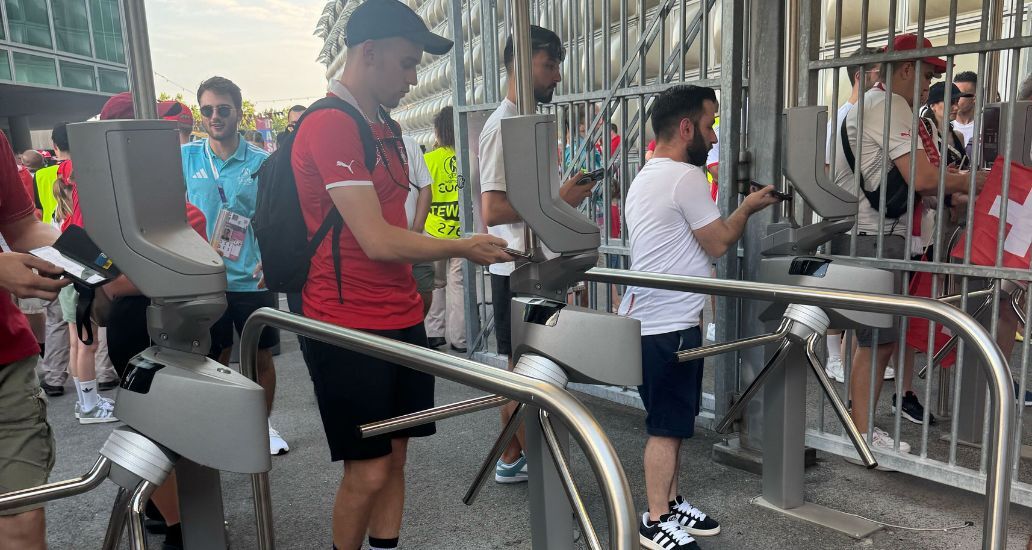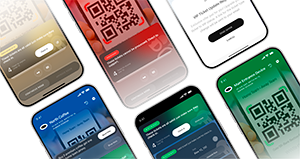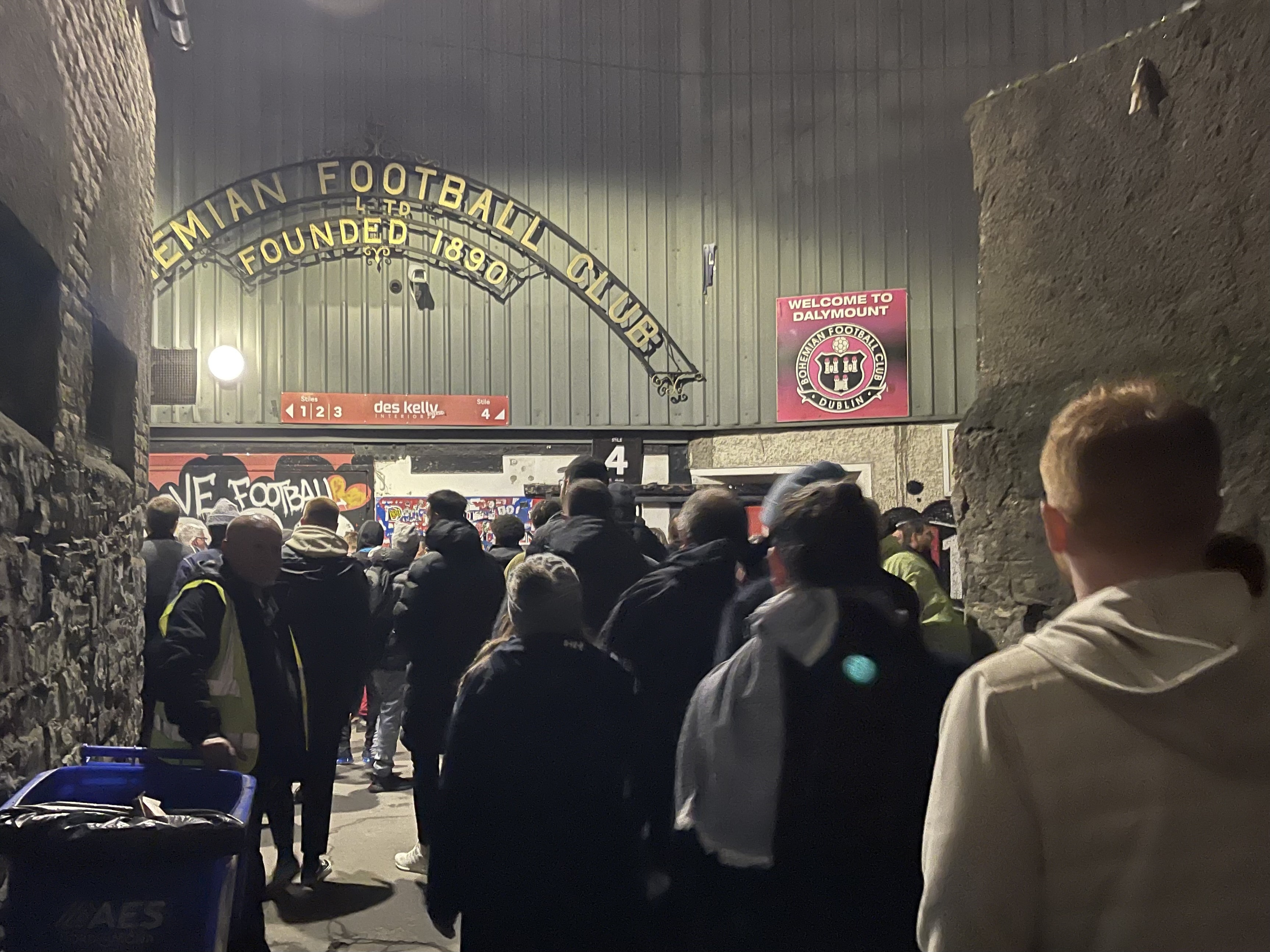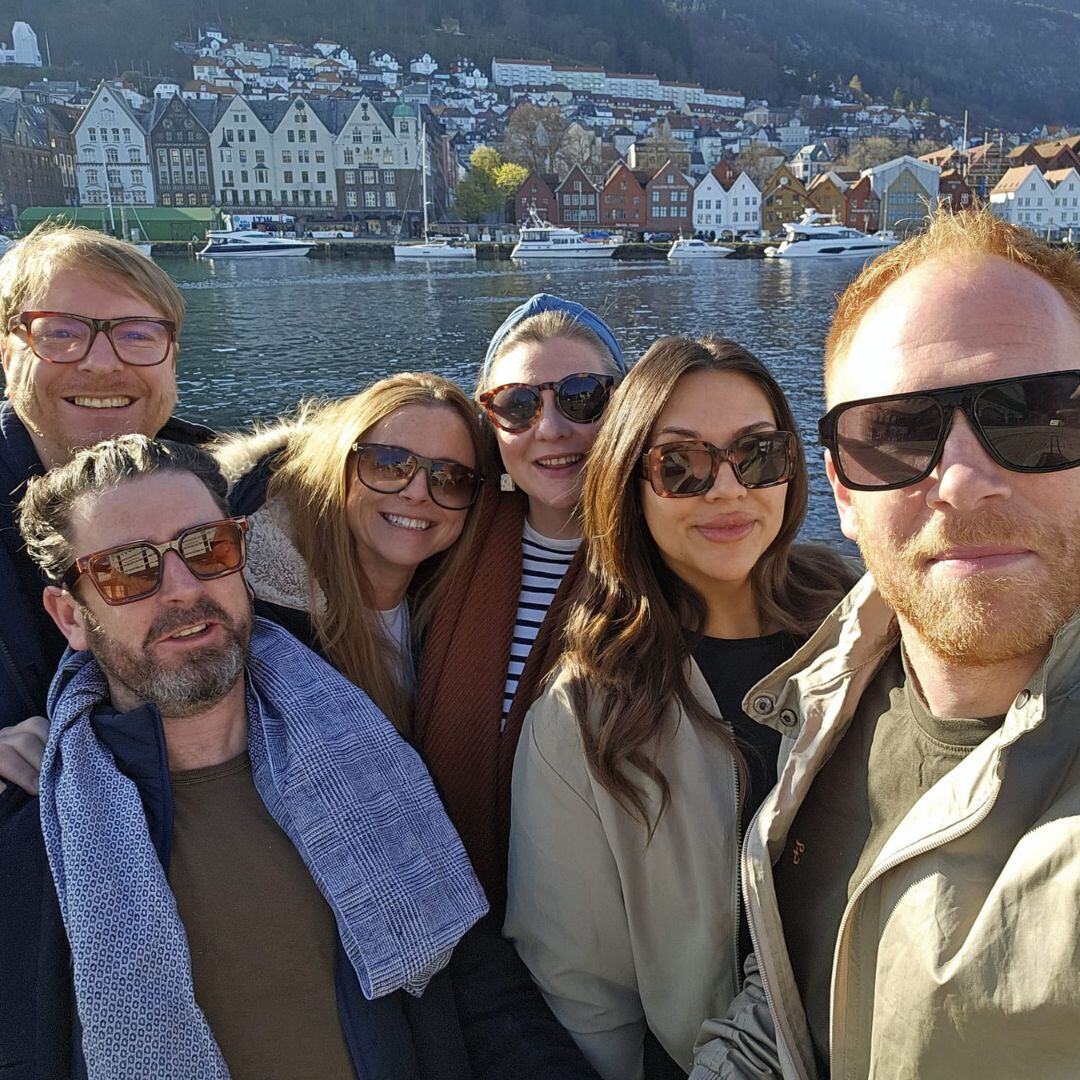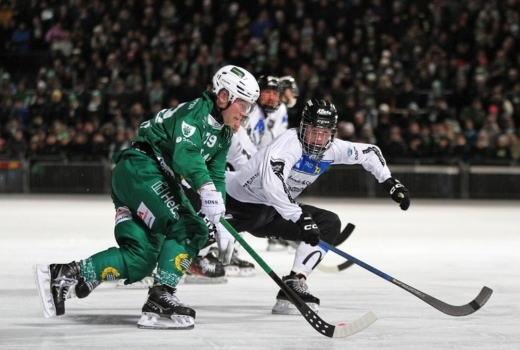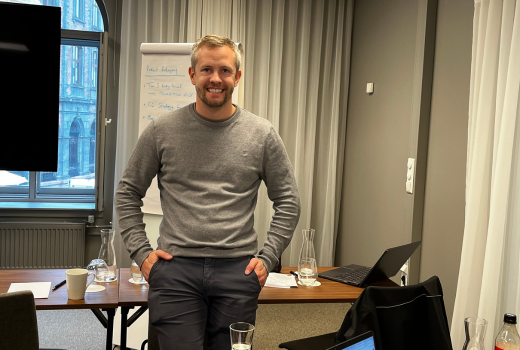Ten Things You Need to Know If You're Playing in Europe - A Field Guide from Bodø/Glimt
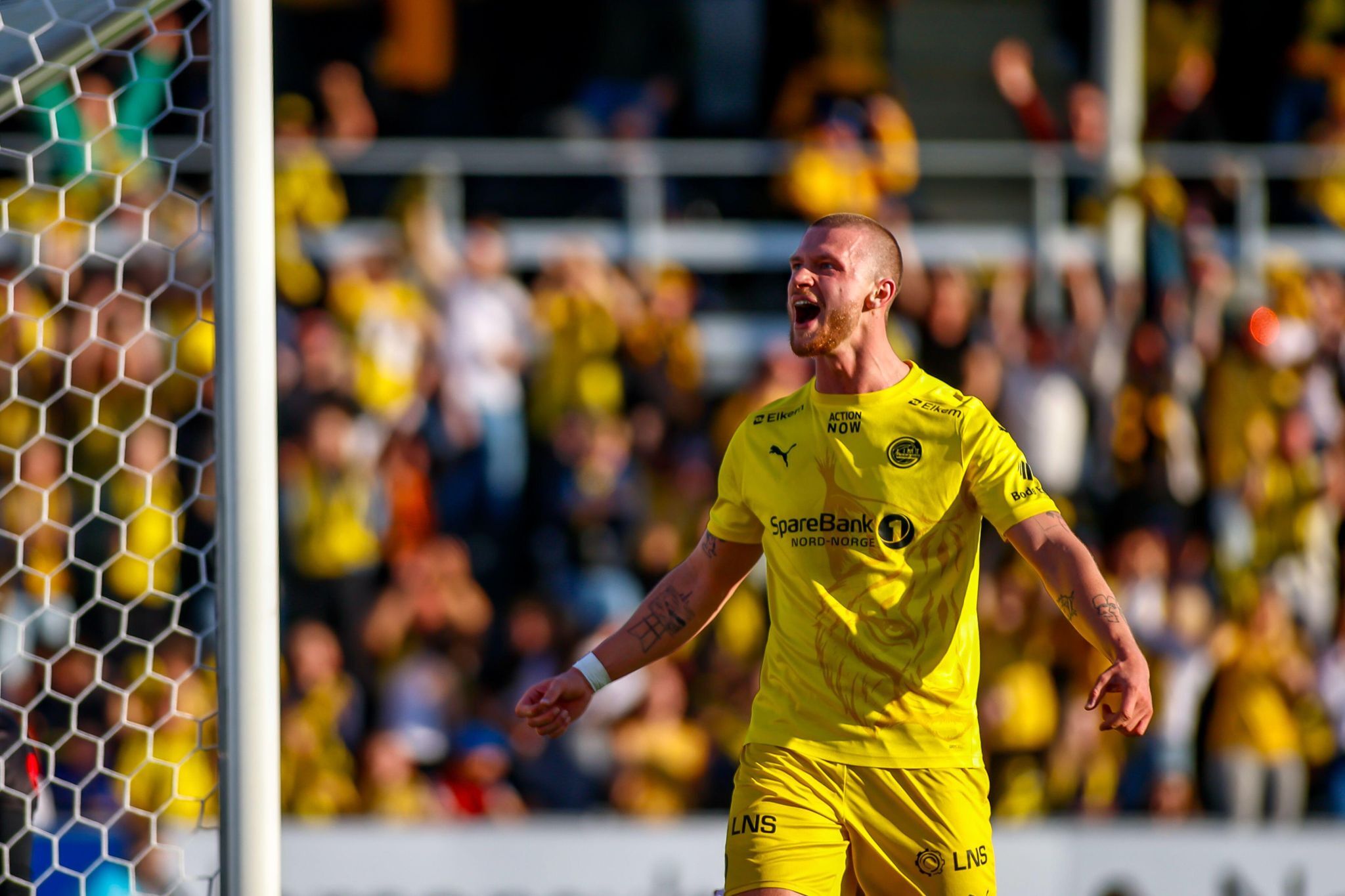
When it comes to recent European experience, few clubs can match Bodø/Glimt.
From blistering cold nights in Bodø to historic away days in Rome and Glasgow, the club has, over the past few seasons, built a remarkably rich portfolio of UEFA competition experience, playing in the Champions League qualifiers, the UEFA Europa League, and making a deep run in the UEFA Conference League.
That journey reached a new high this spring, when Bodø/Glimt made it all the way to the semi-finals of the Europa League, facing off against Tottenham Hotspur after a stunning quarter-final victory over Lazio. These aren’t just matches, they’re milestones, and they’ve cemented Glimt’s status as a respected name in European football.
That success on the pitch has gone hand-in-hand with a steep learning curve off it, especially when it comes to UEFA’s expectations and requirements behind the scenes. From ticketing infrastructure and reporting, to security procedures and seat allocations, there’s a lot clubs need to know—and much of it is very different from the domestic matchday routine.
So if you're one of the lucky clubs preparing to play in Europe this season (congrats!)—here are ten things you’ll want to have on your radar.
These are not direct quotes from UEFA’s official rulebook, but rather an informal field guide, distilled from the real-world experience of a club that’s been there, done that, and got the away ticket stubs to prove it.
We’re grateful to Hågen Alstad, Ticketing and Events Coordinator, and Joe Foster, International Marketing Manager at Bodø/Glimt, for generously sharing their insights and reflections from the club’s UEFA journey.
1. UEFA Ticketing Is a Different Game
Everything from seat allocations to reporting formats and pricing regulations changes when UEFA takes over your stadium. You’ll need to learn the rules for:
- Away ticket quotas
- Official seating plans
- Complimentary tickets and VIP access
- Ticket design and format (UEFA branding, required details)
2. Deadlines Are Sacred
UEFA works on a tight, non-negotiable schedule. Miss a deadline for uploading a seating chart or confirming ticket categories, and you’ll feel it, possibly in your wallet.
“UEFA is very understanding, if you notify them in advance that you need more time. But missing a deadline without explanation creates real issues.
“One season, we were away in Tromsø for the Northern-Norway derby when I started receiving urgent calls. UEFA hadn’t been issued their tickets yet, which meant their commercial partners didn’t have theirs either. I had UEFA on one line and our local partners on the other, while sitting in the back seat of a car driving around Romssa Arena, laptop out, sending tickets manually. Not ideal.”
3. Expect the Stadium to Be ‘Rebranded’
Your stadium is no longer fully your own. UEFA will control:
- Stadium signage and advertising zones
- Matchday sponsor access
- Hospitality and camera placements
“Luckily for us, Aspmyra Stadion doesn’t have a stadium naming rights sponsor, but we still have to review every visual element in the venue before UEFA matches. All ad boards are removed or covered, because they aren’t UEFA partners.
“In the Champions League, this extends even to elements like the perimeter fence. UEFA’s branding rules are extremely strict, and you have to comply completely.”
4. Reporting Is Not Optional (or Flexible)
UEFA wants clear, structured post-match reporting:
- Attendance split by category (home, away, VIP, comps)
- Revenue breakdown
- Digital formats and submission protocols
“Talk to your turnstile manufacturer in advance, and use domestic matches to test gate-by-gate reporting. UEFA might request data in real time on matchday, so you need to be confident your system works under pressure.
“Another tip: make sure your ticket types are specific enough. If you’re mixing home fans and VIPs in the same stand, break it out in the ticketing. We use labels like ‘VIP GLIMT SECTOR H’ and ‘VIP UEFA SECTOR H’ to separate them for reporting purposes.”
5. Away Matches Bring Their Own Challenges
Selling tickets for away fixtures? It’s more work than you might expect. You’ll often be:
- Receiving printed stock from the opponent
- Handling manual distribution
- Managing local regulations in the host country
“The two away games that stand out are Manchester United and Ajax. Against United we received nearly 7,000 tickets for the away end—almost the size of our home ground.
“They required every ticket to be assigned to a named individual. We ended up with a huge Excel file with names, seat numbers, row, and section for each person. It was a massive job just to get everything in order.”
6. UEFA’s Digital Ecosystem Needs Navigation
From ticketing portals to media asset platforms and security check-ins, you’ll be using a suite of digital tools UEFA expects you to understand and follow.
“UEFA’s TIME platform can be intimidating at first. It’s improved a lot recently, but you’ll still end up entering the same information multiple times for different departments.“
"By the time you’ve done one tournament, you’ll know your stadium better than ever.”
7. Expect to Educate Your Fans
Things will be different. Fans used to buying tickets in one way may suddenly face:
- Assigned seats in unfamiliar blocks
- Changes to pricing or pick-up
- ID checks or stricter entry rules
“Even after five or six years in UEFA tournaments, we still have to educate our supporters. The best tools have been social media, our website, and help from local media.
“We also send ticket-buying guides to season-ticket holders by email when sales open. We’ve tested YouTube walkthroughs too. But experience is our best teacher—each year the process gets a little smoother.”
“A key message we’ve repeated again and again is: ‘Information will be on our website, Glimt.no, as soon as it is available.’ That builds trust and gives fans a single reliable source.”
8. Liaising with UEFA Takes Time (and Tact)
You’re dealing with multiple departments, each with their own formats, expectations, and workflows. Learning how to work with:
- Match Operations
- Ticketing & Hospitality
- Security & Accreditation
…is part of the game.
“We’re in contact with UEFA nearly every day from August until our last match. That builds real relationships.
“What helped most was shifting our mindset. Instead of seeing UEFA as a policing authority, we treated them as experts. Our approach became: ‘How can UEFA help us with this?’ That openness has paid off enormously.”
9. You’ll Need Internal Champions
This is not a one-person job. Success depends on coordinated effort across:
- Ticketing and sales
- Stadium operations
- Marketing and fan communication
- Finance and reporting
“At first, we built a dedicated UEFA team made up of match ops and admin staff. Each person had decision-making authority, so we could move quickly when demands came in from UEFA.
“That setup was vital when we had to bring the stadium up to UEFA standards. Now, those workflows are just part of our daily operations.”
10. You’ll Be Better After It
It’s demanding. It’s different. But the process elevates your organisation. UEFA competition teaches precision, discipline, and world-class standards—and those benefits ripple through the club long after the final whistle.
“Playing in Europe has completely changed our trajectory. We’ve nearly doubled our staff since our first tournament—and that growth is entirely thanks to the exposure and demands of UEFA matches.
“We’ve taken the professionalism of UEFA matchdays and applied it to our domestic games. That consistency makes everything smoother when we enter European tournaments.
“Yes, it’s a lot of work—and some late nights—but preparing for all eventualities makes the journey easier. When we hosted a Europa League Semi Final, it felt natural. Because we were ready.”
What Glimt’s European Journey Can Teach Us All
Bodø/Glimt’s transformation wasn’t just about better ticketing workflows or compliant seat maps. It was about embracing change, and using it as a springboard.
They went from domestic challengers to respected European hosts. From reacting to UEFA demands to proactively shaping elite matchday experiences. From late-night scrambles to seamless semi-finals.
That shift wasn’t accidental. It was intentional. Thoughtful. Relentless.
So whether you’re entering your first UEFA tournament or looking to elevate your existing operations, remember this: It’s hard. But it’s worth it. And if you lean into the learning — like Glimt did — your club will come out better, stronger, and more prepared for what’s next.
Key Takeaways for Clubs Entering UEFA Competitions
Playing in UEFA tournaments is a privilege, but it’s also a pressure test for your club’s operational maturity. Based on Bodø/Glimt’s journey, here are some key lessons:
- Start early. From seat maps to signage, the earlier you prepare, the smoother your first matchday will be.
- Deadlines matter. Communicate with UEFA clearly and proactively to avoid avoidable chaos.
- Invest in reporting infrastructure. Your turnstiles and ticket types need to work smarter, not harder.
- Build a cross-functional UEFA team. Decision speed matters more than hierarchy.
- Lean into UEFA support. Treat them as collaborators, not compliance officers.
- Educate your fans relentlessly. Transparency builds trust — especially when things change.
- Make it your new normal. Elevate your domestic matchdays and UEFA won’t feel so different.
Most importantly, take UEFA competition as an opportunity to grow. As Glimt has shown, the learnings don’t stop when the final whistle blows, they ripple across every part of your club.
